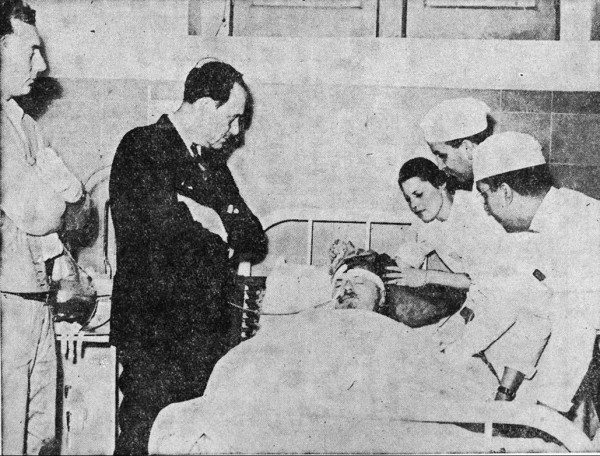“… But whatever may be the circumstances of my death I shall die with unshaken faith in the communist future.”
In poor health and fearing he would be assassinated, Leon Trotsky wrote his final thoughts and feelings on February 27, 1940. The document became known as “Trotsky’s Testament.”
At the time, Trotsky was living in exile in Mexico. He had been living with artists Diego Rivera and Frida Kohla, but after an affair with Kohla and a subsequent dispute with Rivera he had just moved out:
After forcefully denying Stalin’s accusations that he had betrayed the working class, he thanked his friends, all his wife and dear companion, Natalia Sedova, for their loyal support:
My high (and still rising) blood pressure is deceiving those near me about my actual condition. I am active and able to work but the outcome is evidently near. These lines will be made public after my death.
 I have no need to refute here once again the stupid and vile slander of Stalin and his agents: there is not a single spot on my revolutionary honour. I have never entered, either directly or indirectly, into any behind-the-scenes agreements or even negotiations with the enemies of the working class. Thousands of Stalin’s opponents have fallen, victims of similar false accusations. The new revolutionary generations will rehabilitate their political honour and deal with the Kremlin executioners according to their deserts.
I have no need to refute here once again the stupid and vile slander of Stalin and his agents: there is not a single spot on my revolutionary honour. I have never entered, either directly or indirectly, into any behind-the-scenes agreements or even negotiations with the enemies of the working class. Thousands of Stalin’s opponents have fallen, victims of similar false accusations. The new revolutionary generations will rehabilitate their political honour and deal with the Kremlin executioners according to their deserts.
I thank warmly the friends who remained loyal to me through the most difficult hours of my life. I do not name anyone in particular because I cannot name them all.
However, I consider myself justified in making an exception in the case of my companion, Natalia Ivanovna Sedova. In addition to the happiness of being a fighter for the cause of socialism, fate has given me the happiness of being her husband. During the almost forty years of our life together she remained an inexhaustible source of love, magnanimity, and tenderness. She underwent great suffering, especially in the last period of our lives. But I find some comfort in the fact that she also knew days of happiness.
For forty-three years of my conscious life I have remained a revolutionist; for forty-two of them I have fought under the banner of Marxism. If I had to begin all over again I would of course try and avoid this or that mistake, but the main course of my life would remain unchanged. I shall die a proletarian revolutionist, a Marxist, a dialectical materialist, and, consequently, an irreconcilable atheist. My faith in the communist future of mankind is not less ardent, indeed it is firmer today, than it was in the days of my youth.
Natasha has just come up to the window from the courtyard and opened it wider so that the air may enter more freely into my room. I can see the bright green strip of grass beneath the wall, and the clear blue sky above the wall, and sunlight everywhere. Life is beautiful. Let the future generations cleanse it of all evil, oppression, and violence and enjoy it to the full.
Leon Trotsky.
Mexico February 27th 1940
A coda was added later dated March 3rd 1940. Mainly dealing with what should happen should he be involved in a serious drawn out illness, it ends with the following words:
“… But whatever may be the circumstances of my death I shall die with unshaken faith in the communist future. This faith in man and in his future gives me even now such power of resistance as cannot be given by any religion.”
Comment |

 Share on Facebook
Share on Facebook
 Tweet
Tweet
 Add My Story
Add My Story






